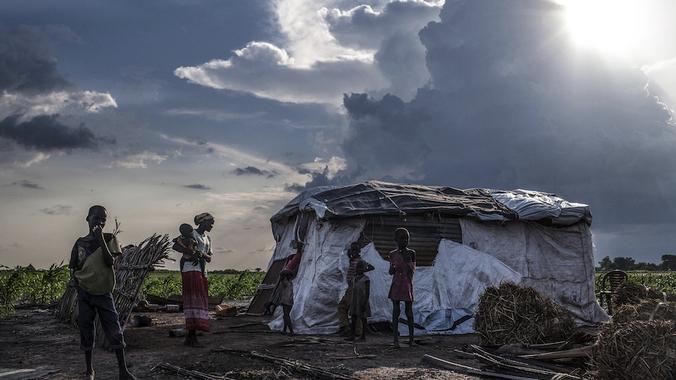
South Sudan tops many aid agencies' humanitarian priority lists. as a three-year civil war exacts a heavy toll on the citizens of the country. (Nichole Sobecki, AFP)
Following a call from the UN for a record $20.1 billion, 15 of the world's leading aid agencies were polled on their top humanitarian concerns.
mg.co.za - by Tom Esslemont - December 28, 2015
There’s one prediction for 2016 that most aid workers can make with confidence – that the new year will usher in rising humanitarian needs.
Besides displacement caused by long-term conflicts in places like Syria and South Sudan, there is also the threat of more violence in Central African Republic and hunger caused by El Nino, which is expected to bring more drought to already-parched southern regions in Africa and potential flooding in the east. . . .
. . . A Thomson Reuters Foundation poll asked 15 of the world’s leading aid agencies to name their top three humanitarian priorities for 2016. Not surprisingly, Syria topped the list of concerns. But what were the others?
(READ COMPLETE ARTICLE)
Recent Comments